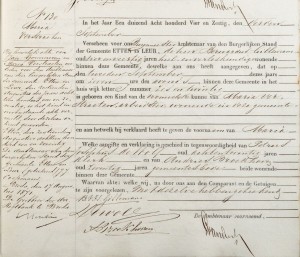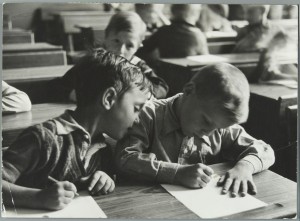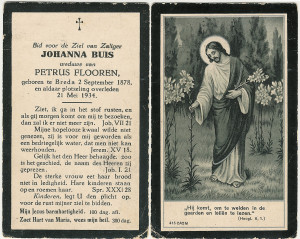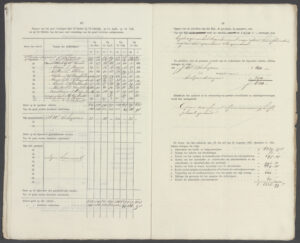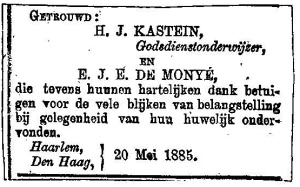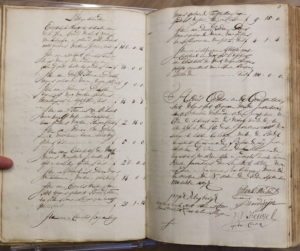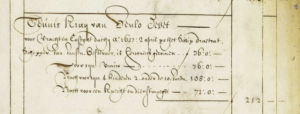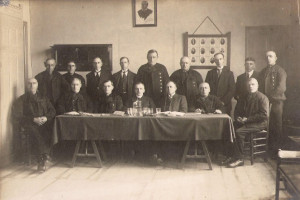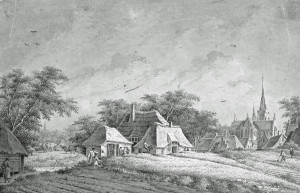Birth records (Dutch: geboorteakte) are a part of the civil registration and were kept since 1811 (or slightly earlier for some parts of the Netherlands). A birth record lists the following data: Place, date and time of birth Names of parents Name, profession and age of the one registering the birth (often the father) Names, profession and age of the witnesses Often: address where the birth took place … [Read more...]
Sources for Dutch Genealogy – Pre 1811 Cheat Sheet
Looking for information about Dutch ancestors in the period from say 1650 until 1811 (before the introduction of the civil registration)? This cheat sheet will tell you which sources to consult. In some cases, not all types of records are available in each region. If a town did not have an orphan chamber, the administration of the estates of (half-)orphans was handled by the court. Not all regions had notaries, in which case voluntary legal actions were handled by the court as well. … [Read more...]
Sources for Dutch genealogy – post 1811 cheat sheet
Looking for information about Dutch ancestors in the 19th or 20th century (after the introduction of the civil registration)? This cheat sheet will tell you which sources to consult. … [Read more...]
Source: prayer cards
I vividly remember the first time I visited the Central Bureau for Genealogy in The Hague. I must have been about sixteen years old, and had just started doing genealogy. My mom also became interested and went with me. When we checked the catalog, we found that there was an envelope with prayer cards of people named Flooren, my grandmother's maiden name. Within minutes, we held the prayer card of Petrus Flooren, my three-times-great-grandfather. My mom and I were very excited about this find. … [Read more...]
Source: Municipal Reports
Since 1851, municipalities were required to write annual reports about the state of the municipality. These reports rarely give information about individual ancestors, but can be a great source of information about their circumstances. Topics you can find in municipal reports: Population Elections Names of the municipal council members Names of mayor and aldermen Finances Municipal property and works Health Police National and local militia Education … [Read more...]
Source: Family announcements
In the Netherlands, there has never been a tradition of writing biographical obituaries like you see in countries like the United States. Instead, "familieberichten" [family announcements] simply announce the death of a person. In the 19th century, only more affluent people had a familiebericht placed in the paper. It was usually very short and only signed by the closest relative, typically the spouse or eldest son. In the 20th century, the announcements became a bit more informative and … [Read more...]
Source: Estate Inventories
Estate inventories tally the assets and debts of a person, family, or company. They were typically created for people of means. You are unlikely to find them for poor ancestors. Different regions have different customs, but in general, you are unlikely to find them before the 1600s, though you may find earlier examples. The most important reasons for creating an estate inventory are: ensuring the rights of minor heirs after a parent died. documenting what a spouse brought to a … [Read more...]
Source: Emigrants to New Netherland (1650-1664)
The New York State Archives in Albany houses many colonial Dutch records. Among those records is an account book of the West India Company, which includes payments for passage to New Netherland from 1650 to 1664. This is a great source of information about New Netherland ancestors. Example: Teunis Kraij This entry for Teunis Kraij translates to: Teunis Kraij from Venlo, debit for passage and victuals when he came here on the ship Draetvat [Wire Cask] on 2 April 1657 AD, skipper Jan Jansen … [Read more...]
Source: church council minutes
Protestant or Reformed churches have a church council that administers the church. The church council consists of the minister, the elders and deacons. Some churches also appointed guardians who were responsible for the management of the church estates. Especially in earlier centuries, the council was involved with all aspects of the lives of their parishioners, ranging from the baptisms of children to the admonishment of sinners. The minutes of the church council can be a real treasure … [Read more...]
Source: Borgbrief (Bond letter)
Before the mid 1800s, if you wanted to move to a new place, you had to provide proof that you would not be a liability to the town. You would be required to submit a bond letter to the authorities, wherein the poor administration or civil authorities of your previous town declared that they would take care of you if you became poor. These letters were called "borgbrieven" [bond letters] or "akte van indemniteit" [record of indemnity] and can be a wonderful source of information about migration … [Read more...]
